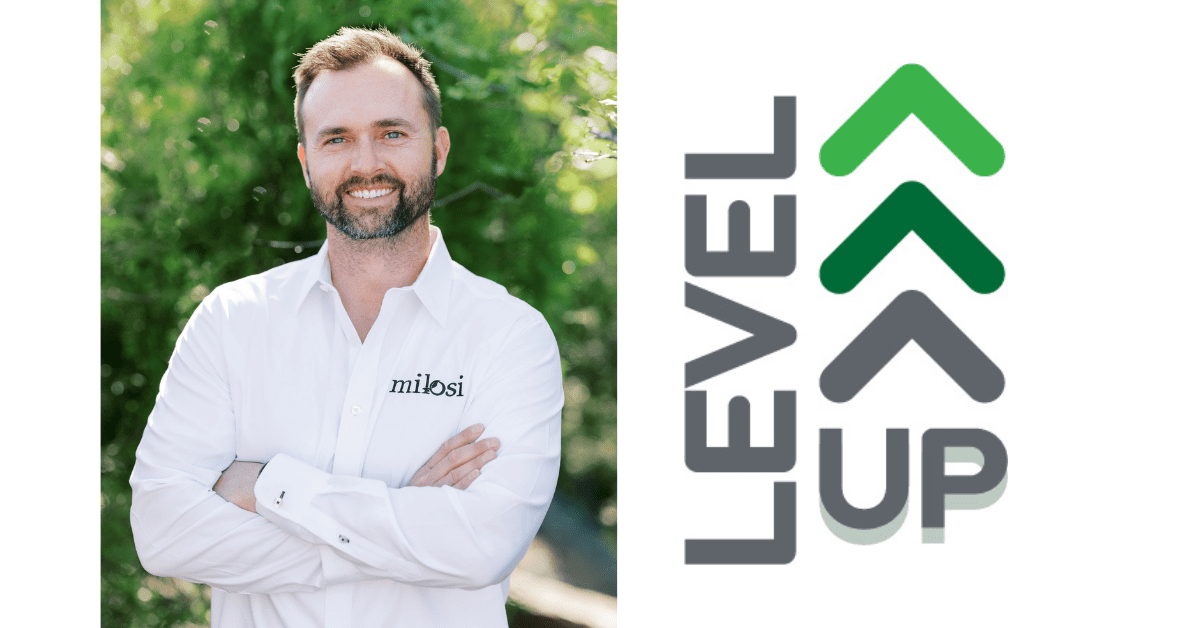
Our Level Up series shares the strategies that help landscape and lawn care companies get to the next level.
It was the beautiful stripes professional mowing services created that first attracted Taylor Milliken to the landscape industry. He started out mowing lawns with his friend at 15 years old.
“I always knew I wanted to own my own company,” he says. “Even when I was a kid. I come from a long history of entrepreneurs, so I feel like it is just in my blood. Around the dinner table growing up, we didn’t discuss politics or sports. It was mostly what was happening with my mom and dad’s business at the time.”
After graduating from high school, Milliken’s brother started a home-building company, and he suggested Milliken start a landscaping business to landscape his homes. He also suggested Milliken subcontract for R&S Groundskeeping. In 2002, they ended up hiring Milliken to mow about 30 properties of theirs on a percentage of revenue basis, and he was officially in business.
Based in Hendersonville, Tennessee, Milosi primarily serves Sumner, Davidson, and Williamson counties, with secondary markets in Wilson and Rutherford counties. The company’s largest customer base is residential design/build clients. They also provide commercial and residential maintenance.
Twenty years later, Milosi was just shy of $12 million in annual revenue. Milliken says their target is $15 million in 2023. While he doesn’t have an ideal company size for Milosi, they have a 10-year target to reach $75 million.
Growing Beautiful Together
Milosi has always been actively growing as their core purpose is ‘Let’s Grow Beautiful Together.’
“That has so many meanings beyond growing the topline of the company,” Milliken says. “However, it does also mean that we want to grow and provide amazing opportunities for our team to grow and give us the opportunities to create more long-lasting relationships with some terrific clients. Growth is challenging, no doubt, but it is also fun and what brings me and our team joy.”
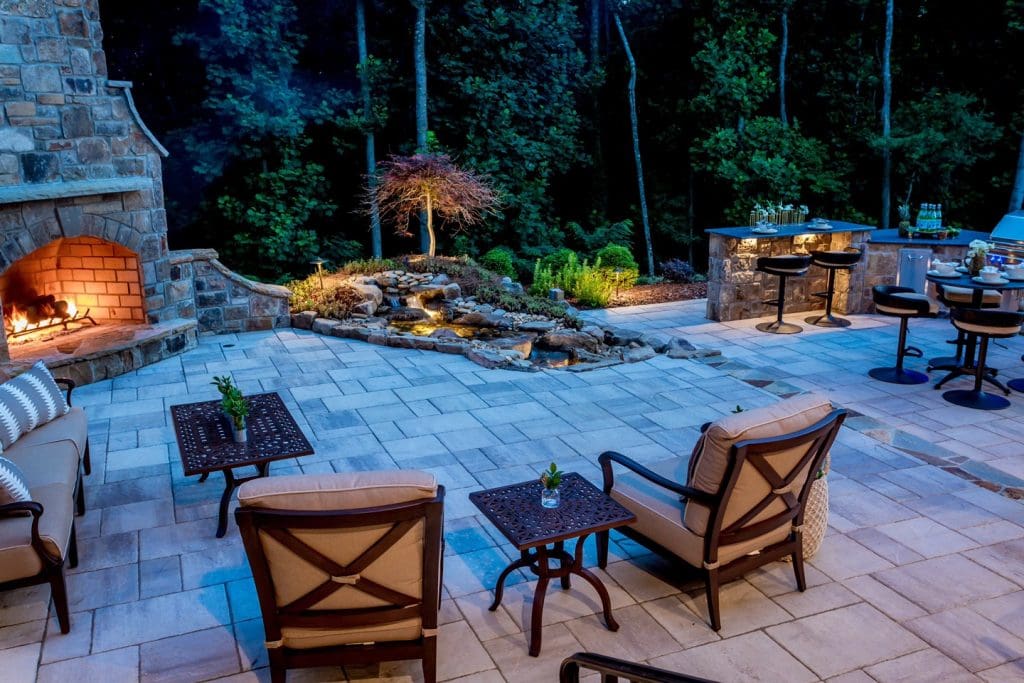
In 2010, Milliken says he stopped running the company like a hobby and started running it like a business. Previously they had only been producing $450,000 in revenue as Milliken was just focused on selling and completing the work without any thoughts of the future.
“When I decided to start running it like a business, I began hiring support roles around me and focused on the future,” he says. “Along with my team, we developed our core purpose and core values we would use to guide us. We began writing job descriptions, setting goals, and invested in marketing. Once I began focusing on building a team and becoming the leader our company needed, everything changed for the better.”
Recently, the company has doubled in size over the last three years, with roughly 30% growth annually. Milliken believes they can sustain that level of growth through acquisitions and organic growth, but as the numbers get bigger, the percentage of growth will trend down.
Milosi also acquired a small irrigation service company which has grown their irrigation clients to over 600, becoming their largest client base service.
With the pandemic, the company experienced increased demand as their residential clients had money to invest in their backyards. Milliken says it also impacted their material costs and material shortages.
“We were not prepared for the material costs going up and it hurt our profitability in a big way,” he says. “Our company was selling projects that we weren’t starting for 6+ months and that were lasting 6+ months. It was a bit like the boiling frog analogy. We didn’t know how bad it was going to hurt us until we got hurt badly. We were able to pivot and add a material escalation clause in our proposals that helped protect us from that date forward, but the effects lasted for about two years.”
Diving Into Pool Building
Milliken says their pool and outdoor living projects are their highest-grossing revenue services.
“They can be the jaw-dropping projects that evoke powerful emotions and create memories that last a lifetime,” Milliken says.

They started designing pools over 10 years ago but were referring clients to pool builders.
“We found ourselves way more involved than we wanted to be or were getting paid to be,” Milliken says. “So after a bad experience with a pool builder and one of our best clients, I decided something had to change. We decided that day that we were going to dive into the pool business. I obtained our general contractor license that is required to build pools in the state of Tennessee and took the plunge.”
They started out small and slow, but six years later, it has become one of their largest divisions. They build the pools in-house now, but Milliken says it’s still subcontractor heavy.
Now they are starting to focus on the pool service side of the business, which they will grow slowly until the time is right to ramp it up.
Keys to Success
Milliken says there are a number of factors that have led to his company’s success, but he says his top three are having a clear set of values, hiring like-minded people that believe in the vision, and never giving up.
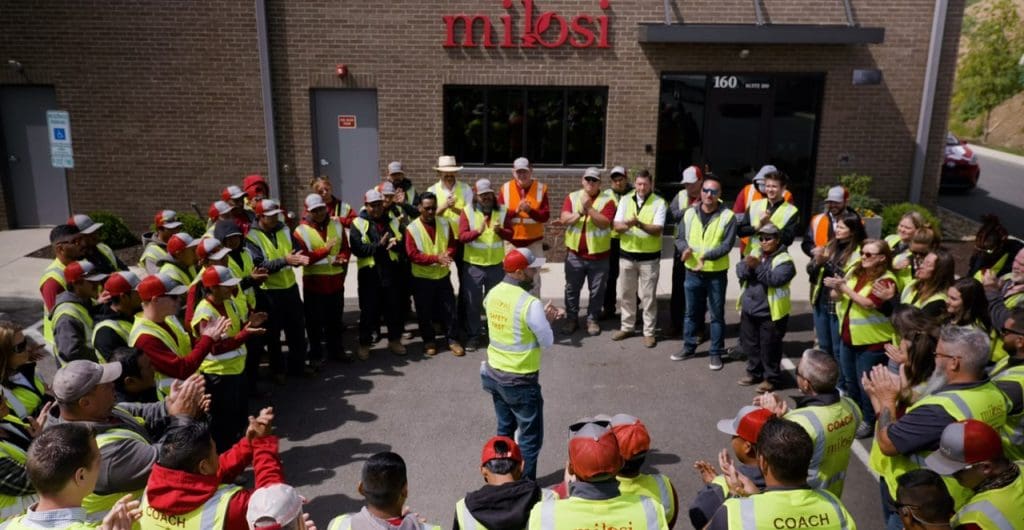
He explains that their purpose and values serve as their true north as they have gotten off the rails a couple of times. Milliken says over the years, they’ve struggled to hire enough people, but more importantly, they have struggled to hire the right people.
“One of the biggest changes we have made to help get it right more often is a structured interview process which always includes peer interviews with hiring managers and other key team members,” Milliken says. “For us to say yes, we don’t have to unanimously approve, but it helps to hear other people’s perspectives. We are looking at cultural fit first and then experience.”
Similarly, Milosi has changed how they select their trade partners and subcontractors. In the past, Milliken says they just wanted someone with a pulse who would show up.
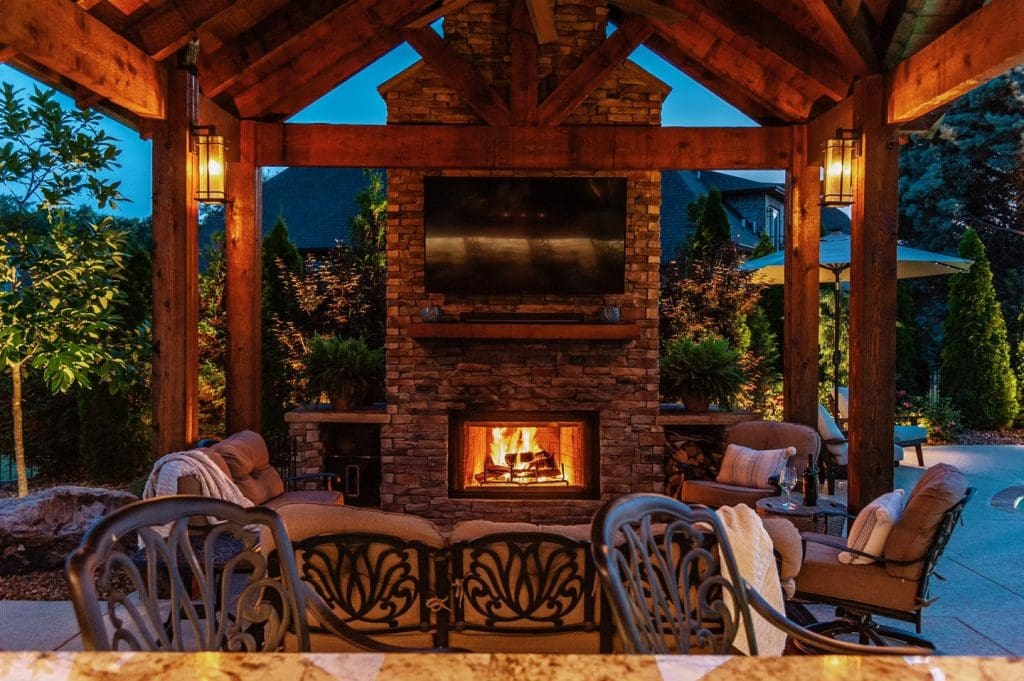
“Now we are looking for alignment with our values,” Milliken says. “It’s important to find subcontractors that align with your company because they are an extension of your company and can have the same positive or negative impact on your clients, team, and P&L. We have continued to challenge ourselves to find alignment with employees, subcontractors, and vendors. If a vendor doesn’t ‘Do What They Say’ then that doesn’t align with our value of ‘We Do What We Say.’ It will eventually be a problem, so we work hard to avoid those issues.”
He says NALP has also provided tools to help them grow, build a better company, and open doors to people. Milliken says attending all of the NALP events has helped him the most.
“NALP has enriched my life because of the relationships I have built along the way,” he says. “I personally love the Leaders Forum the most. It’s the perfect balance between work and play and it doesn’t hurt to be at some of the most beautiful places on this planet.”
He says the connections he has made through NALP has provided him with friends and people who are willing to share almost anything with him.
Being a Destination Company
Milosi has approximately 80 team members and also utilizes the H-2B program. When it comes to recruiting, they’ve found the Nashville market is a double-edged sword. While the economy has allowed them to grow, it’s also required them to compete against other industries.
The company has invested in a full-time bilingual recruiter. Milliken says they wanted to create space for someone to give recruiting the time and attention it needs. They also participate in job fairs, online marketing, working with local schools and universities, NCLC, recruiting firms and posting on Indeed.
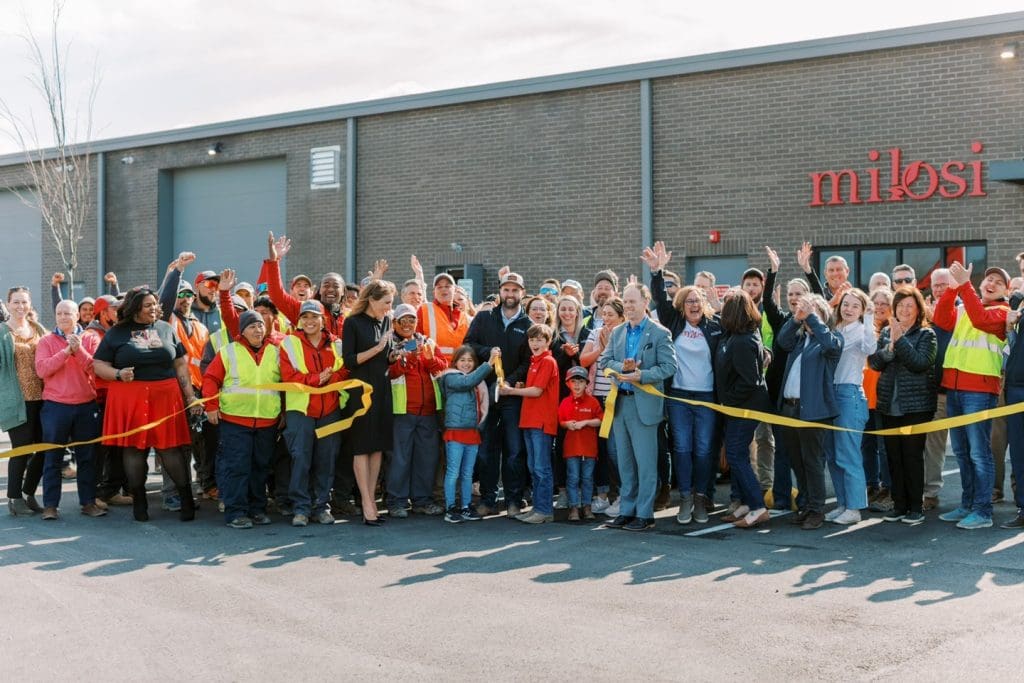
They have gotten aggressive with their pay, benefits and strategies to attract and retain their team members. They also have reward incentives annually, including their profit-sharing program that results in win-win scenarios for their employees and the company.
“First and foremost, you must build a company you’d love to work for,” Milliken says. “To me, that’s your first step to building an intentional culture. Second, pay matters. Everything has gotten more and more expensive, so make sure you’re raising your prices and working on efficiencies so you can pay your team a salary so they can live comfortably. Third, benefits and the golden rule go a long way. I’ve intentionally mentioned these three at the beginning because you cannot focus on hiring until you have focused on retention.”
Milosi also delved into having an internship program over 8 years ago. Milliken says they learned they had to be intentional about it, so they stepped back until 2019 when they had a soft re-launch.
“Our goal was to create one of the best internship programs in the country,” Milliken says. “To do this, we had to create value and not just plug the intern into the field as summer labor. We started with our design department led by Tara Piergies Baker. She has done a wonderful job creating and managing the program.”
Milosi’s program features three parts where the intern spends time in the department of their choice in the field, then their department of choice in the office, and lastly, in the field or office within the same or a different department of their choice. They get to job shadow, interact with clients, and work with their hands to get a true experience.
“We are currently batting over .500 for our internship since we re-launched it in 2019,” Milliken says. “We have also had some success with interns going to work for friends in other markets. If we find a great intern that doesn’t want to settle in Nashville, we will refer them to someone in the market they call home or close to home.”
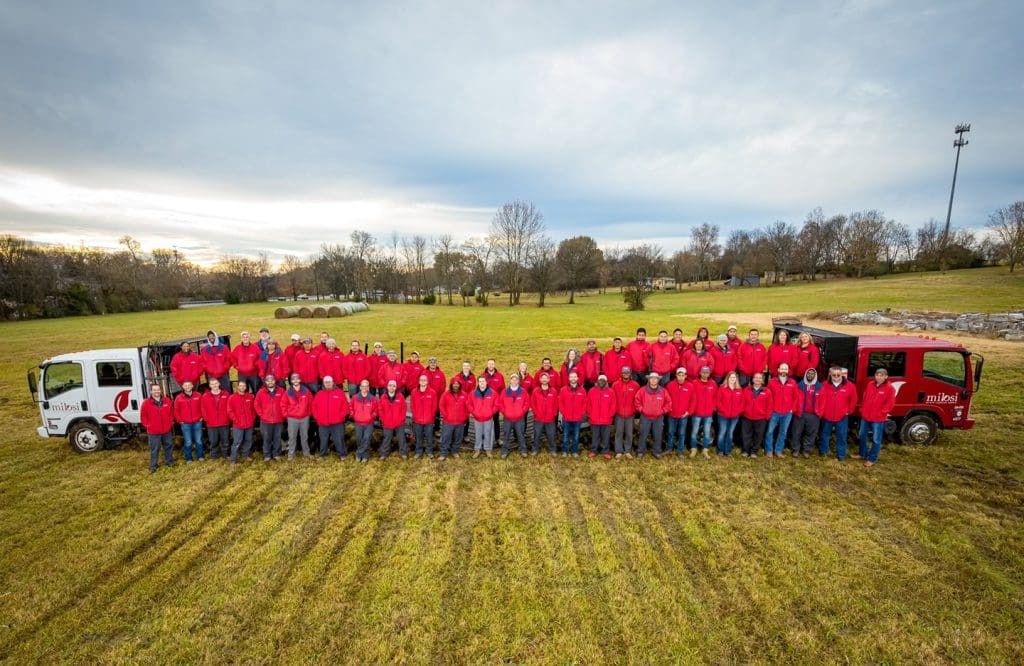
Milliken says their key to retention is fostering employee engagement.
“We believe if you’re engaged and connected with your team, and they are engaged and bought into the vision, they will be successful and they will stay,” he says. “How we do this is having a very clear vision and set of values. We then hire, fire, reward, and recognize around those values.”
This is the company’s first quarter where every team member has a ‘rock’ (the EOS term for a priority). He says they also invest heavily in team members’ education and advancement.
“We offer mentor programs where a mentor partners with their mentee and works through the 7 Habits of Highly Effective People book and workbook,” he says. “We also have created ‘in-training’ positions that provide the team member with a commitment from us that we are actively training them to grow into that next-level position. All this boils down to caring about your team and focusing on their quality of life and helping them achieve their goals.”
Milliken says in the past, they didn’t really have a training program to speak of, sending crew leaders and project managers out on the job the first day due to time constraints.
“We are doing much better at this than ever before, and we are going to continue to make it a priority,” he says. “I know to keep the great team we are fortunate enough to hire, we have to help them grow, thus keeping them engaged. How we are doing started with our position titles, training plans, and quarterly rocks.”
Milliken says they maintain their culture as the company grows by keeping a pulse on their team’s morale and client satisfaction.
“Practically speaking, we survey our team once per month using the eNPS survey that provides us with some feedback,” he says. “We also survey our team quarterly and one question is ‘Feel of the Team.’ You cannot let the surveys be your only pulse though. Happy employees will be referring friends, family, and people they meet. Happy employees do great work and make clients happy. If you start seeing different results, you may have a cultural issue.”
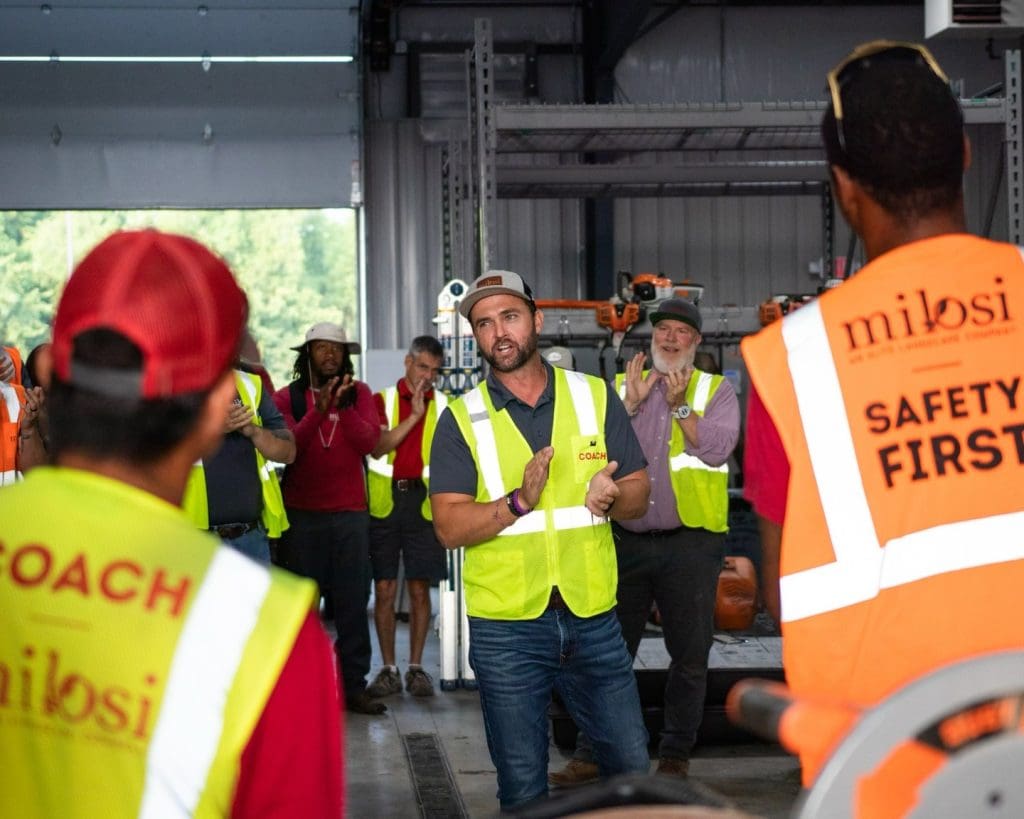
He says developing clear written processes on how the company does things has also been critical, as previously, employees were doing things their way rather than the Milosi way.
“This was problematic because we were getting a variety of results which is not what you want when focused on consistency,” Milliken says. “We are now fully invested in solving this problem. It’s now on the 3-year plan, and we feel that we will have our processes and training written and trained and followed by all by the end of 2025. That seems like an eternity from now, but we know this is a journey.”
Click here to read more Level Up stories.

